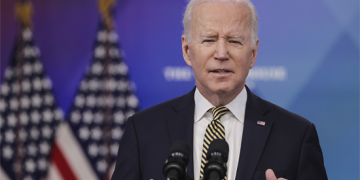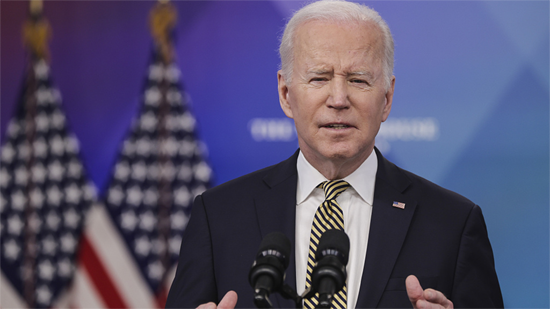CGTN
No man is perfect, but good luck finding someone who understands geopolitics better than Henry Kissinger. The man celebrated most especially in the U.S. and China for his efforts at ending decades of silence between the two countries has repeatedly warned Western leaders in recent years that seeking to place Ukraine too deeply into their orbit would have dangerous consequences.
Those leaders did not listen. And now we are nearly one month into a confrontation over that country that will not end well, no matter when and how the fighting finally stops.
Kissinger outlined his concerns quite eloquently in a 2014 editorial that appeared in the Washington Post. He noted: “In my life, I have seen four wars begun with great enthusiasm and public support, all of which we did not know how to end and from three of which we withdrew unilaterally. The test of policy is how it ends, not how it begins.”
Soon, he articulated why the West had to accept Russia’s concerns about Ukraine and its historical association with the nation. He wrote: “The West must understand that, to Russia, Ukraine can never be just a foreign country. Russian history began in what was called Kievan-Rus. The Russian religion spread from there. Ukraine has been part of Russia for centuries, and their histories were intertwined before then.”
Further down, he added this: “To treat Ukraine as part of an East-West confrontation would scuttle for decades any prospect to bring Russia and the West – especially Russia and Europe – into a cooperative international system.”
We will never know with certainty whether current and former presidents, prime ministers and chancellors read Kissinger’s message. However, we can state with full confidence that the sage advice was ignored.
As a result, and although people in the West will refuse to accept it, the bitter reality is the United States and the West bear some responsibility for what has happened over the past month. If they had been satisfied with letting Ukraine chart its own course but insisting that a precarious peace would fall apart if the idea of NATO membership remained an open question, then there is reason to believe none of what we have seen over the last four weeks would have ever happened. Unfortunately, the U.S. and Western Europe never stopped looking at Eastern Europe as a place to spread its influence. The Russian reaction was inevitable.
Keep in mind that Kissinger never gave Russia a free pass to do what it wanted in Ukraine. He stated that President Vladimir Putin should not seek war; Kissinger knew such an act would isolate Russia and create conditions for a renewed Cold War. Kissinger did not endorse any effort at undermining the right of the Ukrainian people to decide what their political and economic future would be. But Ukraine had to remain out of NATO.
It was – and still is – Russia’s contention that NATO was an institution with relevance when the Soviet Union was seen as a legitimate threat to the West. Putin and other Russian leaders assert that with the demise of the USSR, and with the disbandment of the Warsaw Pact, which was the Communist world’s counterpart to NATO, that NATO should have discontinued its steady push closer to Russia’s borders. They also say the metaphorical red line was crossed when Western leaders did not end all talk on Ukraine’s potential to join NATO.
None of what you have read in the preceding paragraphs should be interpreted as defending Putin and the fateful decision to launch what he describes as a “special military operation” and what the West calls “a war” in Ukraine. You and I have seen far too many images of missiles striking buildings and families being separated. As bad as the destruction of buildings and homes is, the humanitarian crisis is worse. New buildings will eventually go up, but thousands of families will never be whole again. Putin must decide when enough is enough.
In the meantime, “war crimes” is a topic now openly discussed in Western circles. I will leave it to others to argue what is a war crime right now, but I will ask everyone to consider this question: Are accusations of war crimes only valid when Western leaders are making the claim? Or as we consider one of those wars Mr Kissinger referenced in his editorial, can the West commit them as well?





